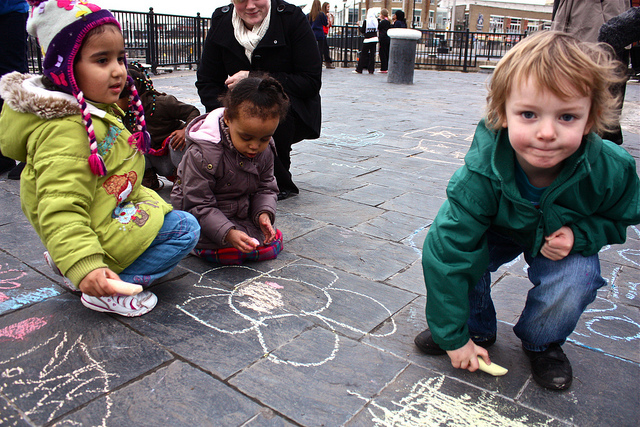 *Excerpt from Ch. 2, “Why Bilingual is Better”
*Excerpt from Ch. 2, “Why Bilingual is Better”
We could continue citing more research and studies on the benefits of bilingualism, but the truth is that, to many of us, scientific fact is just the icing on the cake. It helps to justify the struggles we might face, or to arm ourselves when we need to defend our decision to raise our children with two languages to those who don’t really get it. However, for most of us already embarked on the bilingual journey, the initial spark came not from the brain, but from the heart.
The heart of a parent who so desperately needs to feel constantly connected to her child. The heart of a parent who always wants what is best for her child. The heart of a parent who wants to see himself reflected in his child.
For many bilingual households, language is the bridge to the essence of who we are and to the heart of our heritage. In my case, there is no better way for our girl to understand and love where we come from than by experiencing it for herself through our food, customs, family and the language which binds us to all of that: español.
We are now part of a growing segment of the population which has decided to go against the monolingual norm—and even social oppression—to give our children the gift of a second (or more) language, a connection to our heritage and an open door to explore diverse cultures.
The main reasons why we choose to raise bilingual children are usually more personal than not, but all those studies help back up our efforts. If we were just looking to improve our children’s cognitive development, we could easily teach them a musical instrument or sign them up to play on a sports team, but the reasons behind our choice to raise bilinguals usually go beyond simple rationale into the personal and emotional realms.


Great book, congatulations! I am sure it can also inspire monolingual families to find ways to raise their children with more than one language.
Buenos dias!! Quiero en primer lugar felicitarlas por su gran labor, las ví en Al Punto con Jorge Ramos y me gustaría que Ustedes visiten nuestra página en Facebook “Libros en Español para niños” tenemos libros para aprender a escribir, leer, actividades, canciones, matematicas, cuentos y estamos impulsando el uso y aprendizaje del Español en nuestra comunidad hispana.
Nos gustaria conocer sus opiniones al respecto y si es posible establecer un vinculo donde podamos impulsar nuestro hermoso idioma.
GRacias por la atención prestada y quedo a la espera de sus comentarios.
I feel that is among the most significant info for me.
And i’m happy studying your article. However want to
observation on some basic issues, The web site style is ideal, the
articles is actually nice : D. Just right activity,
cheers